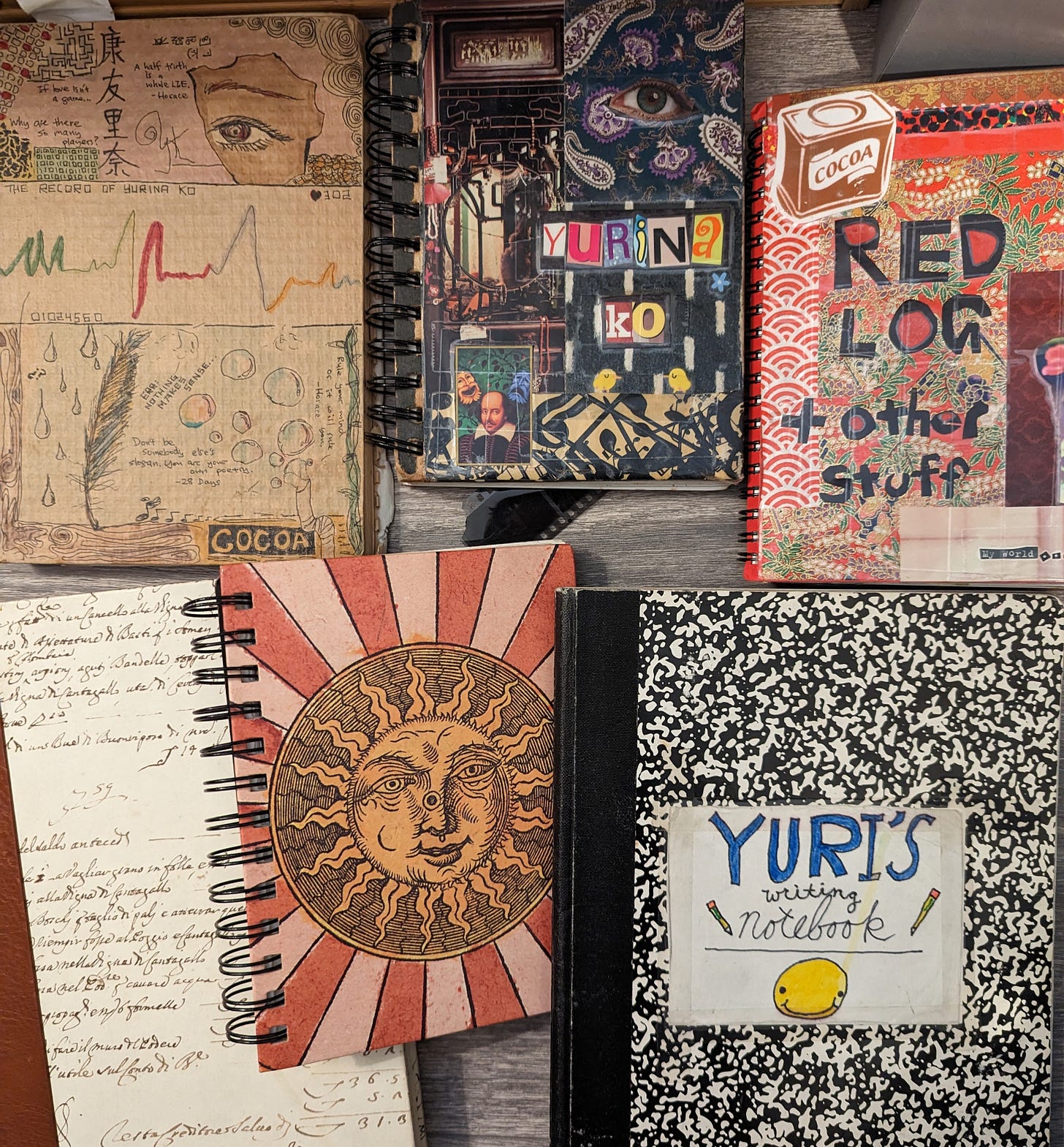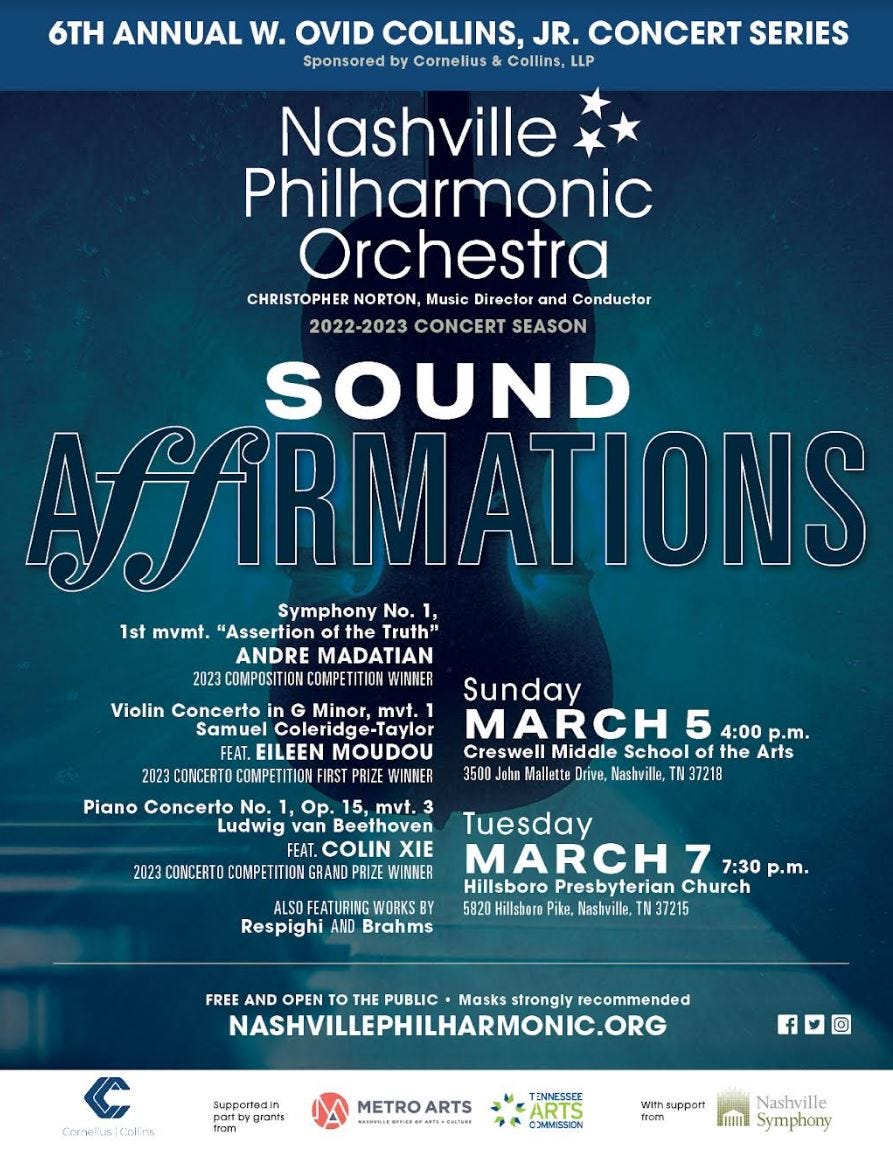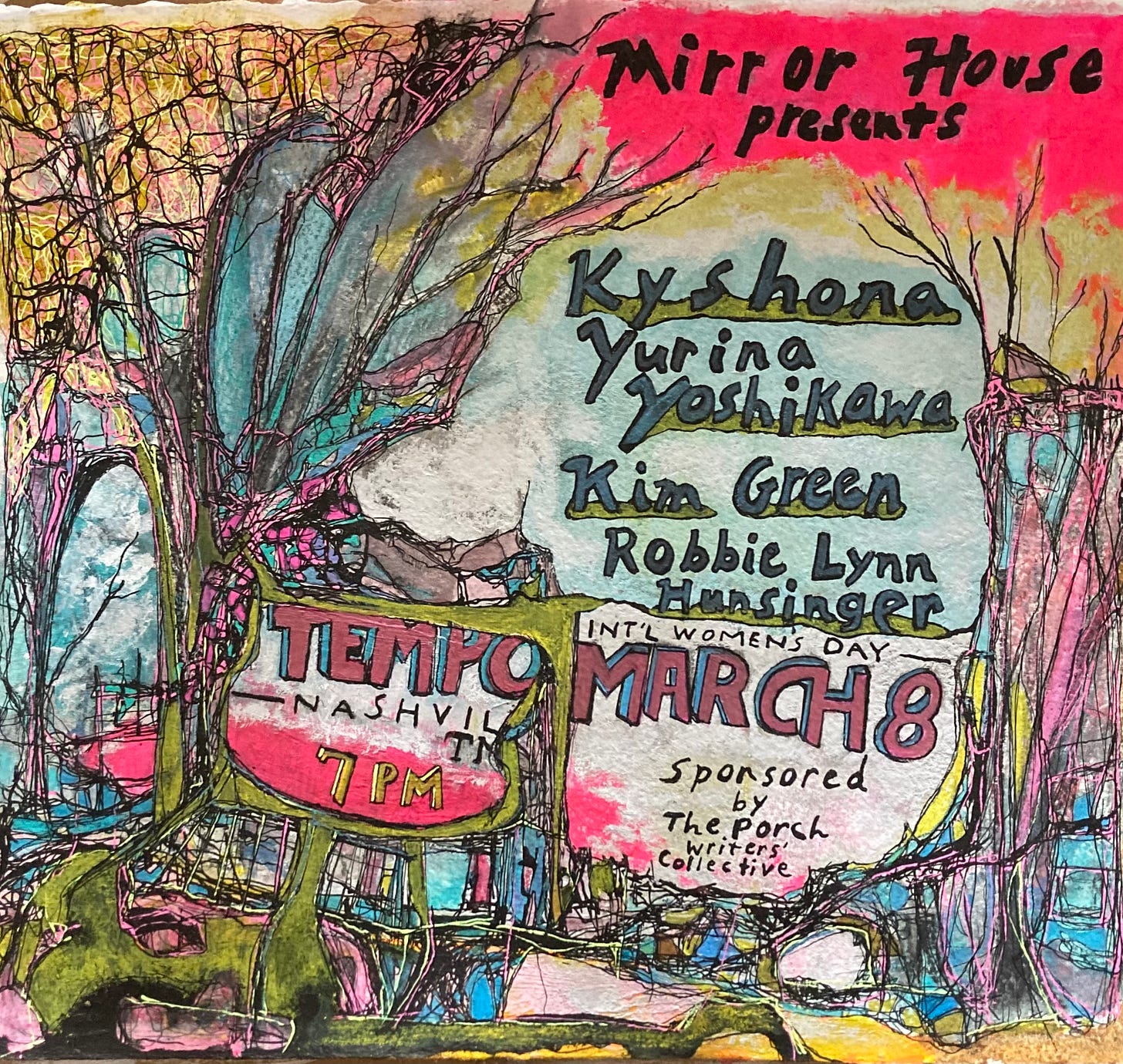Journals, scraps, residues, and lists
On writing that never sees the light of day
I’ve been actively writing and revising a novel for the last couple years. It started out as a short story, which I shared for the first time at a Zoom reading event, and later got published in an anthology about Tennessee writers reflecting on the year 2020. The story expanded, little by little, through mere 1-page exercises prompted by the Nashville POC Writers Group that formed thanks to Malaka Gharib and Steve Haruch. The prompts were simple and open-ended enough for all eight of us to produce completely different results. “Write about New Year’s.” “Write about a song.” “Write whatever comes to mind with these words: Golden Door.”
After a few months, I had 40 pages of something that felt like a proper skeletal structure of a longer project. I started publishing some of the chapters as additional short stories to test the waters with different sets of readers. At 90 pages, I signed a contract with my agent, who believed this will become a real book someday. At 230 pages, I shared the manuscript with a few writer friends and sensitivity readers, whose feedback helped me recognize holes in the story that needed patching. The draft is about 250 pages now, and it feels like I’m very close to finishing the story, the book, the novel. I know, as someone who worked in book publishing and has drafted several other novels in the past, that even after I’m “done” with the draft, the book will be far from becoming a real book. I’m already bracing myself for the next rounds of edits with my agent and if I’m lucky, an editor at a publishing house.
Still, I’m at the point where I can see a bit of the light at the end of the tunnel. Sometimes, knowing this fuels me to write and revise for hours so that I can reach my goal as quickly as possible. Other times, I get crippled with anxiety that maybe this book isn’t good after all, that maybe it’s only interesting to me, and should never see the light of day.
I’ve written hundreds of pages that have ended up in that very pile. Over the winter holidays, I visited my dad in Tokyo and cleaned out my old closet. I took all the journals I had saved from as early as elementary school and flipped through some pages before slamming them shut. It’s all pretty unbearable stuff. Bad love poems, Shakespeare fan fiction, dream journals, hopes, fears, yadda yadda.
The notebooks I carry with me now are not that much better. Replace bad love poems with household to-do lists, the Shakespeare fan fic with Godzilla-inspired speculative fiction, and the rest with equally scrappy sentences and ideas that sometimes make their way onto my official word documents, but are mostly left there, never to be read again.
Ever since my MFA, I have drafted and printed out countless pages of attempted essays, stories, and novels which mostly ended up in recycling or inside dusty boxes, lying dormant in my current closet. Digitally, I keep a folder called “Residues.” Paragraphs, chapters, entire books I decided to scrap but didn’t have the heart to delete.
Writing all these lonely pages reminds me of something my friend Joe Gomez recently said. He’s currently making a documentary about the Nashville Philharmonic Orchestra, and he has hours of footage (and counting) for a story he anticipates will run about 30 minutes. He is generously sharing still photographs from these shoots with the orchestra for their records and branding purposes, but I imagine that a lot of it will, like my notebooks, never be seen by the public. That’s just part of the process.
To clarify, I say all of this not with regret or sadness, but matter-of-factly. I actually believe there might be something quite sacred about this kind of writing that will never be read by anyone else. They’re mine and mine alone. Forever.
On the flip side, I’ve written things that have gotten read, that seemingly have nothing to do with my creative endeavors. Book reviews. These newsletters. Emails to friends.
That’s when I remember: my private emails to friends are what initially inspired that short story that later evolved into this novel.
Sometimes, students will ask me about my “writing practice.” I’m still figuring it out, I say. My practice is inconsistent. I don’t write everyday, I write when I can and when I want. If I don’t want to write, I read or listen to something, which usually makes me want to write. But as someone who’s working towards producing something that I hope many people will read, I’m beginning to understand something about the balance between writing for yourself and writing for someone else. That balance will look different for every writer—but for me, I need to go through a lot of the former before sitting down to do the latter. And when I try to write for someone else, it can help to start small, with an email to a friend. Then, a small writing group. Then, an open mic. Then, a handful of strangers through a niche magazine. Then, (maybe?) something bigger.
It’s that time of the year again! Nashvillians, mark your calendars for March 5 and 7 for free classical music concerts with the theme: Sound Affirmations. These pieces, ranging from Beethoven, Respighi, to a premiere of a new symphony by a local composer, will make you feel renewed and stimulated. I’ll also be there to show off my students’ writing (the teen writers responded to the Coleridge-Taylor and the adults to the Respighi). Hope to see you there!
Come hear me read from my Godzilla fan fic (it’s serious I promise) at the upcoming Mirror House event on Wednesday, March 8, 7 p.m. at Tempo Nashville! I’ll be sharing the stage with some wonderful women including singer-songwriter Kyshona, writer and radio producer Kim Green, and avant-garde instrumentalist Robbie Lynn Hunsinger.




